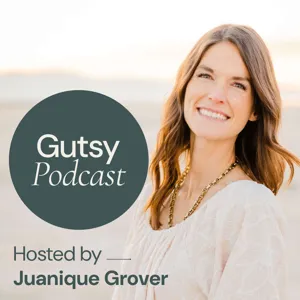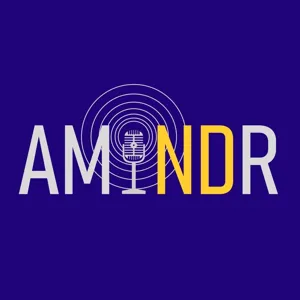Join us in this captivating episode as we dive into the fascinating world of functional mental health and neuroinflammation with Brendan Vermeire, a renowned Mental and Metabolic Health Scientist & Researcher and the creator of The Mental M.A.P.™️.
Discover Brendan's gripping personal journey that ignited his profound interest in the field of mental health. We explore the crucial role of microglial cells and the link between mental health and insomnia.
Brendan emphasizes the impact of lifestyle choices on our mental health struggles and shares the secrets to nurturing your fundamentals for optimal mental well-being.
In addition, Brendan unveils his own sleep habits, providing valuable takeaways for restorative sleep and optimal mental health. Take advantage of this informative and engaging discussion!
BIO:
Brendan is a Mental and Metabolic Health Scientist & Researcher, Functional Medicine Educator, Writer, and Speaker. He is a Board-Certified Holistic Health Practitioner, Master Nutrition Coach, Master Personal Trainer, USAW Sports Performance Coach, and Crossfit Trainer.
He began his career as a personal trainer and nutrition coach at the age of 18 after disappointingly being medically discharged from the United States Navy Seal training pipeline due to an injury. After being exposed to the power of functional lab testing in the start of his career, he began intensely pursuing that as a career path which has led him to be widely regarded as one of the top leading experts in Metabolic Health and Functional Education.
He is the proud owner and founder of the Metabolic Solutions Institute for Functional Health and Fitness Practitioners and the creator of the Functional Mental Health Practitioner Certificate Course. He is also the founder of the Metabolic Solutions Research & Education Foundation, a not-for-profit foundation dedicated to ‘changing the way the world views mental health’ through advancing the science of Mental Health Dysfunction. He is also the creator of The Mental M.A.P.™, a cutting-edge Lab Panel for Mental Health.
When he’s not educating doctors/practitioners/professionals, helping clients overcome their most severe health struggles, or producing cutting edge scientific education, Brendan enjoys all things fitness and is probably working out. He also enjoys anything in nature and any activities that expand his heart, mind, and soul.
To learn more about Brendan, please visit: www.metabolicsolutionsllc.com
SHOW NOTES:
🧠 What made Brendan interested in functional mental health and neuroinflammation?
🧠 Exploring the crucial role of microglial cells
🧠 Link between neuroinflammation and Insomnia
🧠 Insights into the sleep challenges faced by many Americans
🧠 Brendan addressed that lifestyle behaviors play a significant role in people's struggles
🧠 What are the foundational elements that coaches and practitioners should motivate their patients to implement
🧠 How to nurture your fundamentals for mental well-being
🧠 Objective assessment of brain cell dysfunction
🧠 Reinforcing objective data
🧠 Benefits of Mental M.A.P testing
🧠 What could we learn from Brendan's sleep-night routine?
🧠 Learn more about The Mental M.A.P.™️ www.metabolicsolutionsllc.com
SPONSOR:
📈 If you want to raise your HRV AND get a free HRV consultation...
Mode + Method - HRV+ Code: SLEEPISASKILL15
GUEST LINKS:
Website: www.metabolicsolutionsllc.com
Instagram: the_holistic_savage
Linkedin: https://www.linkedin.com/in/brendan-vermeire-23754693/
DISCLAIMER:
The information contained on this podcast, our website, newsletter, and the resources available for download are not intended as, and shall not be understood or construed as, medical or health advice. The information contained on these platforms is not a substitute for medical or health advice from a professional who is aware of the facts and circumstances of your individual situation.
Next Steps To Upleveling Your Sleep -
Website: https://www.sleepisaskill.com/
‘Sleep Obsessions’ Monday Newsletter: https://www.sleepisaskill.com/newsletter
8-Week Wearable Group “Optimize Your Sleep” Program: https://www.sleepisaskill.com/optimize
Sleep Is A Skill Podcast: https://www.sleepisaskill.com/podcasts
LinkedIn: https://www.linkedin.com/in/mollie-eastman-sleep-is-a-skill-82531825/
Instagram: https://www.instagram.com/mollie.eastman
TikTok: https://www.tiktok.com/@sleepisaskill
Facebook: https://www.facebook.com/sleepisaskill/
Twitter: https://twitter.com/SleepIsASkill
YouTube:
https://www.youtube.com/channel/UCy-IU372xapHLvXnZRbXU7A










